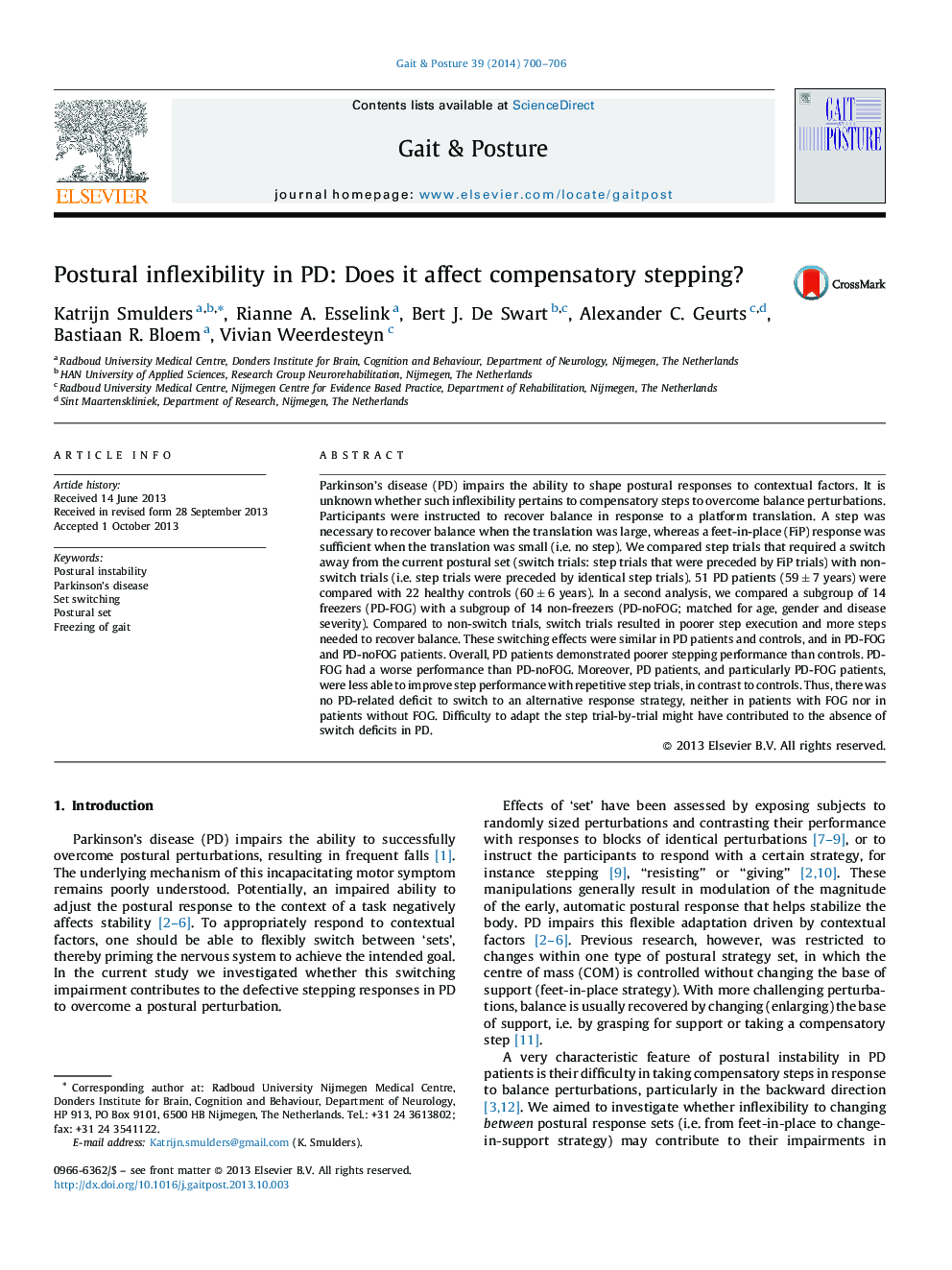| کد مقاله | کد نشریه | سال انتشار | مقاله انگلیسی | نسخه تمام متن |
|---|---|---|---|---|
| 6206373 | 1265646 | 2014 | 7 صفحه PDF | دانلود رایگان |

- Postural inflexibility is thought to affect balance maintenance in PD.
- We investigated whether postural inflexibility affects compensatory stepping.
- We compared a series of step responses to steps preceded by feet-in-place responses.
- Switch from a feet-in-place to step strategy led to deteriorated step performance.
- This switch effect was not different between PD patients and controls.
Parkinson's disease (PD) impairs the ability to shape postural responses to contextual factors. It is unknown whether such inflexibility pertains to compensatory steps to overcome balance perturbations. Participants were instructed to recover balance in response to a platform translation. A step was necessary to recover balance when the translation was large, whereas a feet-in-place (FiP) response was sufficient when the translation was small (i.e. no step). We compared step trials that required a switch away from the current postural set (switch trials: step trials that were preceded by FiP trials) with non-switch trials (i.e. step trials were preceded by identical step trials). 51 PD patients (59 ± 7 years) were compared with 22 healthy controls (60 ± 6 years). In a second analysis, we compared a subgroup of 14 freezers (PD-FOG) with a subgroup of 14 non-freezers (PD-noFOG; matched for age, gender and disease severity). Compared to non-switch trials, switch trials resulted in poorer step execution and more steps needed to recover balance. These switching effects were similar in PD patients and controls, and in PD-FOG and PD-noFOG patients. Overall, PD patients demonstrated poorer stepping performance than controls. PD-FOG had a worse performance than PD-noFOG. Moreover, PD patients, and particularly PD-FOG patients, were less able to improve step performance with repetitive step trials, in contrast to controls. Thus, there was no PD-related deficit to switch to an alternative response strategy, neither in patients with FOG nor in patients without FOG. Difficulty to adapt the step trial-by-trial might have contributed to the absence of switch deficits in PD.
Journal: Gait & Posture - Volume 39, Issue 2, February 2014, Pages 700-706